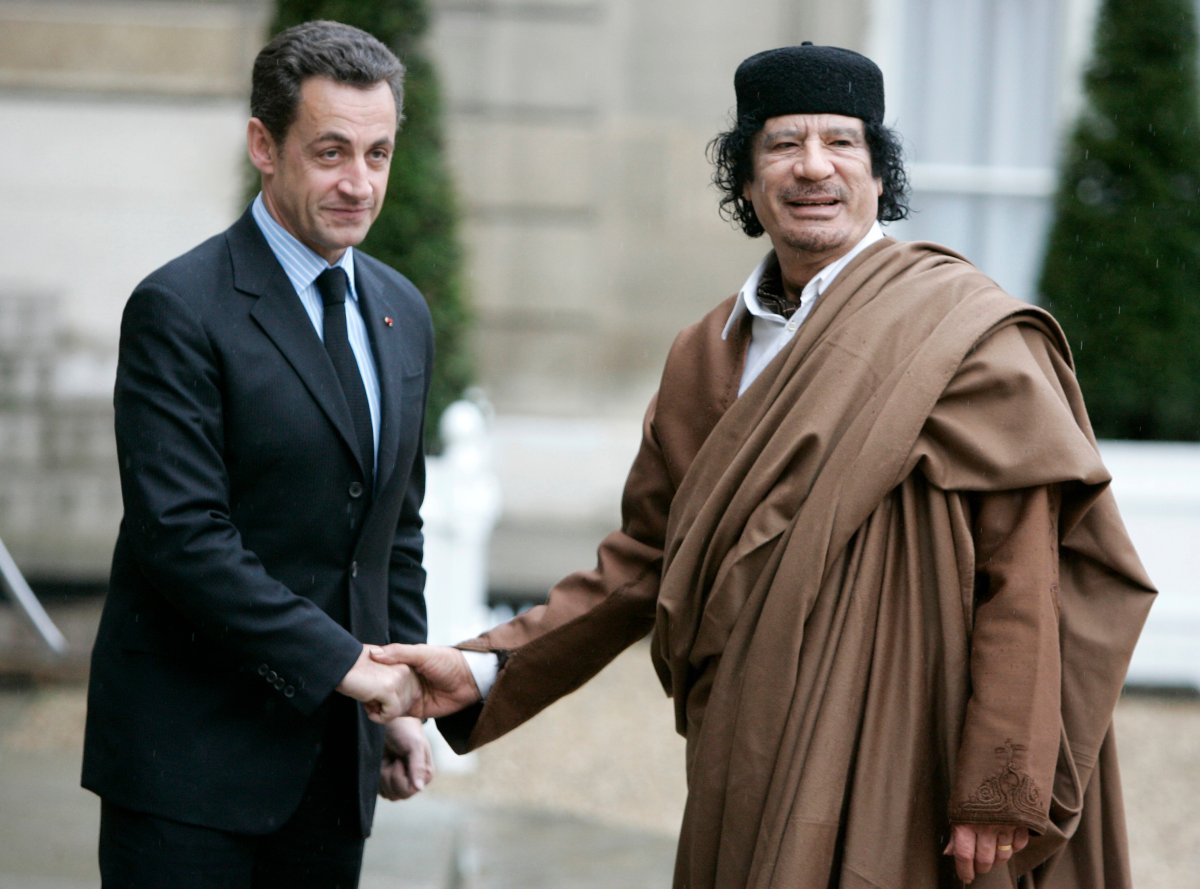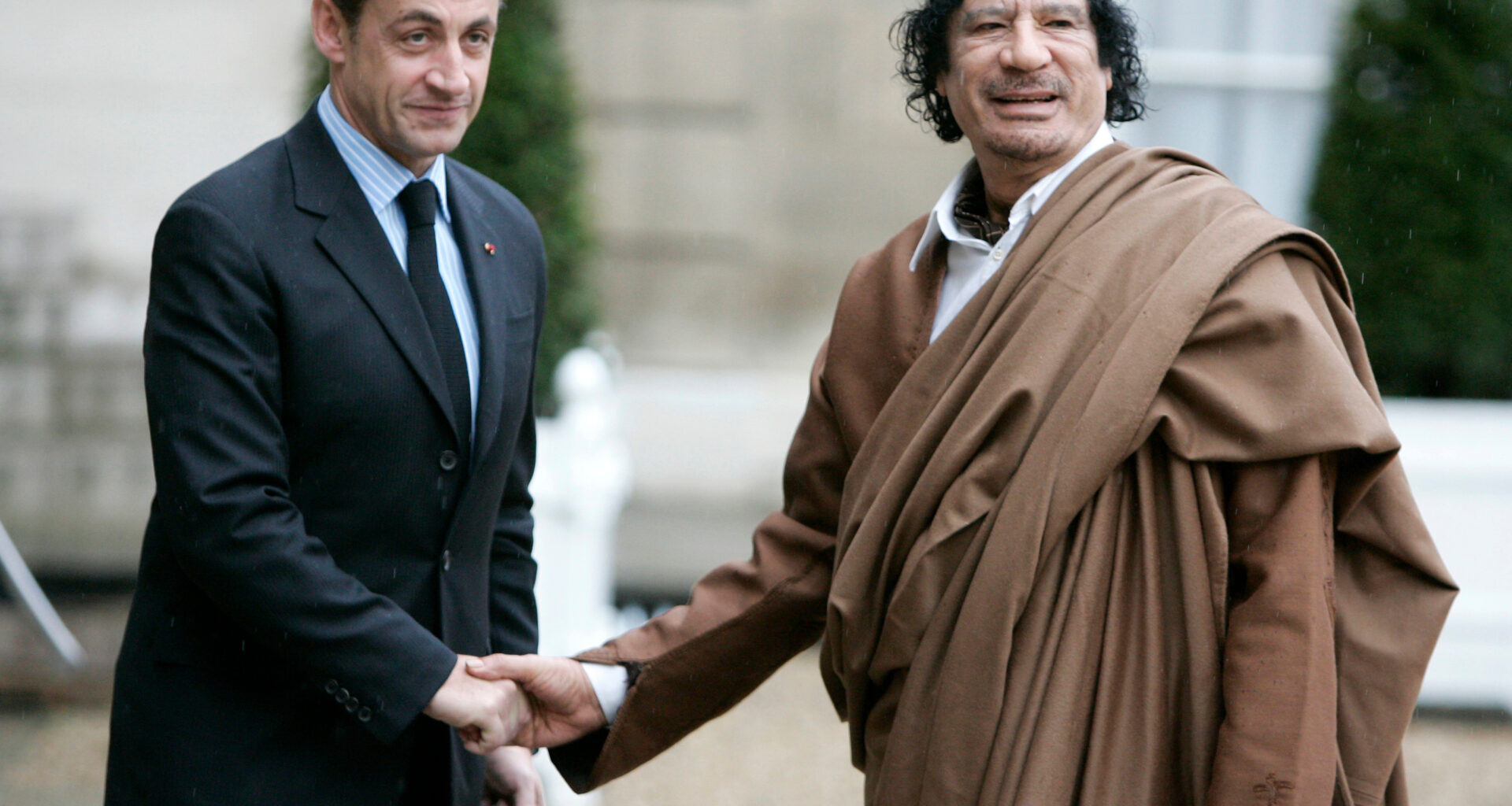Former French President Nicolas Sarkozy heads to trial on Monday over alleged illegal financing of his presidential campaign by the government of then-Libyan leader Moammar Gadhafi.
Why It Matters
The origins of the case trace back to 2011, when allegations surfaced that Gadhafi’s regime had funneled funds into Sarkozy’s campaign. In 2012, the French investigative outlet Mediapart published a document allegedly from Libyan intelligence, claiming Gadhafi’s regime agreed to contribute €50 million ($52 million) to Sarkozy’s campaign.
Sarkozy dismissed the document as a forgery, but investigators have since indicated the document appears authentic even as they acknowledge a lack of definitive proof of financial transactions.
The allegations came as Sarkozy’s administration initially maintained close ties with Gadhafi, even hosting him with full honors in Paris in 2007. However, Sarkozy later supported NATO-led military intervention in Libya in 2011, which culminated in Gadhafi’s death.

French President Nicolas Sarkozy, left, greets then-Libyan leader Moammar Gadhafi upon his arrival at the Elysee Palace on December 10, 2007, in Paris. Sarkozy heads to trial on Monday over alleged illegal financing of his…
French President Nicolas Sarkozy, left, greets then-Libyan leader Moammar Gadhafi upon his arrival at the Elysee Palace on December 10, 2007, in Paris. Sarkozy heads to trial on Monday over alleged illegal financing of his presidential campaign by the government of Gadhafi.
More
Francois Mori/AP
What To Know
On Monday, Sarkozy, who served as president from 2007 to 2012, arrived at a Paris courtroom to face charges linked to the illegal financing allegations. The official cost for Sarkozy’s 2007 campaign was €20 million ($21 million).
Sarkozy, 69, denies the charges, which include passive corruption, illegal campaign financing and concealment of embezzled public funds. The trial also implicates 11 other defendants, including former ministers and intermediaries accused of facilitating illicit financial transactions.
Sarkozy’s legal troubles have extended beyond this case. He has already been convicted of corruption and illegal campaign financing in separate scandals. Last year, he was sentenced to house arrest with an electronic bracelet for attempting to bribe a judge.
Despite these legal troubles, Sarkozy’s team insists on his innocence in the Libyan case, framing it as a baseless conspiracy.
Witness Testimonies And Allegations of Tampering
A critical figure in the case is Ziad Takieddine, a Franco-Lebanese businessman who told news site Mediapart in 2016 that he had delivered three suitcases from Libya containing millions in cash to the French Interior Ministry. However, Takieddine, who initially testified about delivering millions in cash, later recanted his statement.
Since then, a separate investigation has been launched into alleged witness tampering as magistrates suspect an attempt to pressure Takieddine in order to clear Sarkozy. Sarkozy has since been accused of witness tampering, a charge he denies.
Another notable figure is Shukri Ghanem, Libya’s former oil minister, who allegedly kept detailed records of payments. Ghanem’s mysterious death in 2012 and the subsequent discovery of his notes have fueled speculation about the extent of Libyan funding.
What People Are Saying
Sarkozy’s lawyer Christophe Ingrain said in a statement: “There is no Libyan financing of the campaign. We want to believe the court will have the courage to examine the facts objectively, without being guided by the nebulous theory that poisoned the investigation.”
Gadhafi previously said in an interview in 2007 that “it’s thanks to us that he reached the presidency. We provided him with the funds that allowed him to win.”
What Happens Next
The trial is scheduled to run until April 10 with a verdict expected at a later date. If convicted, Sarkozy faces up to 10 years in prison.
This article includes reporting from The Associated Press.
